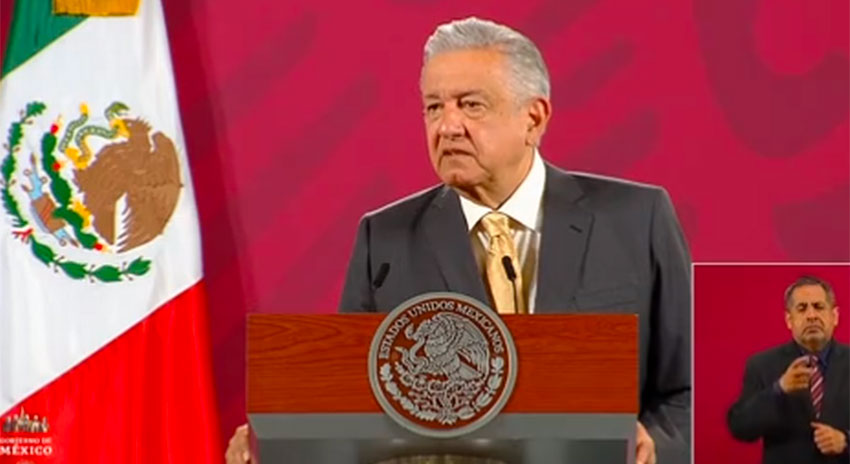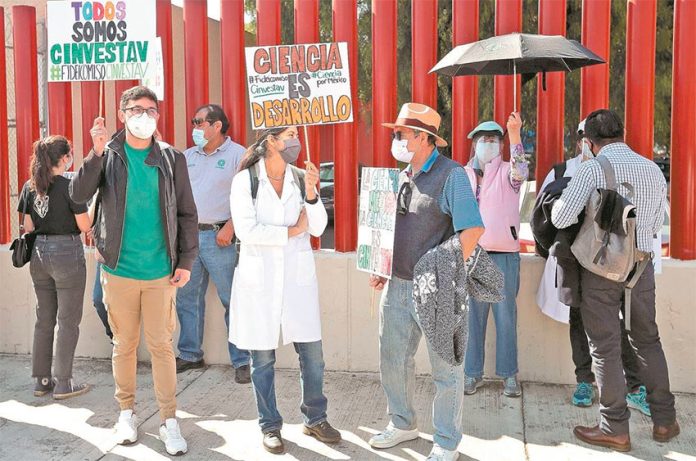Several academics have slammed a plan proposed by Mexico’s ruling party to abolish more than 100 public trusts, asserting that it represents a threat to current and future scientific research.
President López Obrador’s Morena party is proposing the elimination of 109 trusts, including about 30 that fund scientific research and others that provide resources for the arts and the media.
Fonden, the national disaster fund, and Fidecine, the cinema stimulus and investment fund, will also be among the trusts abolished if the plan is approved.
A committee of lawmakers approved a reform earlier this week that would allow the Interior Ministry (Segob) to control the funds of the 109 trusts, which this year had a combined budget of 68 billion pesos (US $3.1 billion). If the trusts are abolished and Segob takes control of the money, it could be redirected to other projects.
The government says the aim of the plan is to streamline funding and that funds in the trusts could go to spending on healthcare including the response to the coronavirus pandemic.
For López Obrador, the trusts represent opportunities for corruption. He said on Thursday that they are “out of control” and lacking in transparency. Abolishing them will prevent aviadores — people who collect a paycheck every two weeks without working — and avoid paying money to intermediaries.
Instead, the money will go directly to beneficiaries, the president said.
Lawmakers were scheduled to debate the proposal to abolish the trusts in the lower house of Congress on Thursday but discussion didn’t go ahead because an insufficient number of lawmakers was present.
Debate has been rescheduled for Tuesday and if the proposal is approved by the lower house it will be sent to the Senate. A Morena-led coalition has a majority in both houses of Congress.
A group of researchers and students protested outside the Congress building yesterday, holding up signs with messages such as “Without science there is no future” and “Science is development.”
According to the newspaper El Universal, a group of Morena party lawmakers emerged from the Congress and told the protesters that even with the abolition of the trusts, funding for science won’t be cut.

But several academics have a different view.
Antonio Lazcano, a biology researcher and professor at the National Autonomous University (UNAM), said the dissolution of the trusts would amount to a government “seizure” of funds that are not theirs to take.
He asserted that the government is demonstrating a contempt for science that is reminiscent of the attacks former president Gustavo Díaz Ordaz made on universities and other tertiary education facilities in the late 1960s.
Lazcano said the gravest consequence would be the suspension of some 60 Covid-19 research projects at the National Polytechnic Institute’s Center for Research and Advanced Studies (Cinvestav).
Brenda Valderrama, president of the Morelos Academy of Sciences, said the abolition of the trusts would constitute a big blow to science research.
She told El Universal that she has been a researcher for 25 years and in that time she has seen the construction of a funding framework that allows more equitable access to resources. Funding applications are less vulnerable to discretion and the poor management of resources, Valderrama said.
But now “what we’re seeing is that framework being broken,” she said. “It’s not that it can’t be built again but it will take us a long time. It was a job that took more than 20 years.”
José Antonio Aguilar, a researcher at the Center for Research in Teaching and Economics (CIDE), a Mexico City university, said the plan is another example of the government not listening to stakeholders.
“[The government] has flagrantly ignored … all the reasons, arguments and evidence that have been set out so that this madness is not committed. When power divorced from reason is exercised, it’s extremely grave for the life of the country,” he said.
The trust of CIDE and 25 other public research centers would be abolished under Morena’s proposal, a move Aguilar said would strip them of the money they need to operate.
“This is a kind of expropriation of money that the centers … [use] to provide for their needs,” he said. “This is a strategy to centralize and make the management of resources for science in Mexico discretionary.”
José Franco, a UNAM astrophysicist, said that lawmakers’ promises that funding for science will continue despite the abolition of the public trusts cannot be trusted.
“The word of the legislative power is not worth anything because there will be elections next year and there will be other legislators. It’s impossible to know how they will react and what those who follow them will do. They say now that there will be support [but] it’s … a false promise,” he said.
Lazcano and Gerardo Herrera Corral, a Cinvestav physicist, both said that the next generations of scientists will suffer the consequences of Morena’s proposal.
The latter said that more experienced researchers who are well-established in their careers have greater possibilities of accessing overseas funding whereas young people working on their doctorates or other projects find it more difficult to obtain foreign grants.
Lazcano said political leaders are demonstrating a lack of vision. The resources the trusts provide “guarantee the continuity and maintenance of [scientific] infrastructure and the continuity of research projects,” he said.
“The training of young scientists is being thrown overboard with complete blindness,” Lazcano said. “It’s evident that the president has no idea of the importance of science, he doesn’t have the slightest interest in understanding what is happening.”
Mexicans involved in the arts, including actor Gael García Bernal, have rejected the plan, saying that funding for science, media, the arts and human rights will be subject to the whims of political cycles.
Madrazo and other people who spoke with the Reuters news agency said that the planned abolition of the trusts is part of government efforts to more closely control public resources, including those that go to critics of President López Obrador.
Source: El Universal (sp), Reuters (en)
